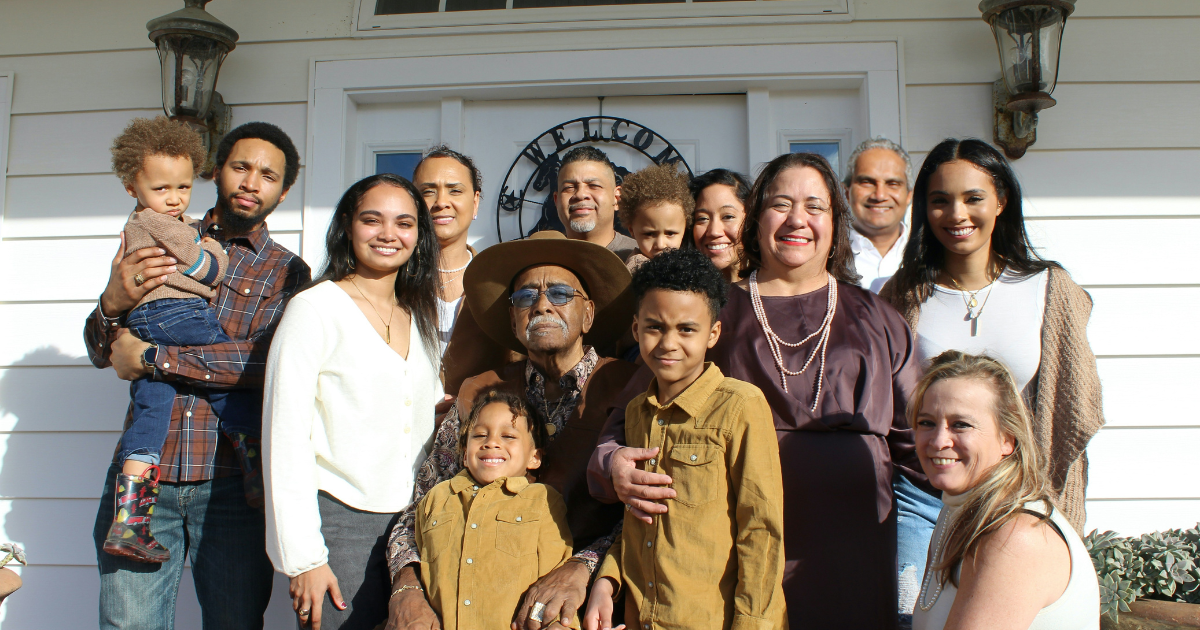Facing a child custody battle? Finding experienced lawyers for child custody can make all the difference. This guide will help you understand custody laws, the role of a custody lawyer, and how to choose the best attorney for your needs.
Key Takeaways
- Child custody law involves various types of custody, including legal and physical custody, which are determined by the child’s best interests, stability, and parental fitness.
- Hiring a qualified child custody lawyer is essential for effective representation, as they provide expertise on local laws and help navigate complex custody issues, ensuring the child’s well-being is prioritized.
- Parents should develop a comprehensive parenting plan and be prepared to address common custody challenges and potential modifications based on changing circumstances to maintain a stable environment for the child.
Understanding Child Custody Law

Child custody law is a multifaceted domain that determines the division of parental responsibilities and rights following a separation or divorce. Both parents are responsible for the safety and well-being of the child, making custody disputes during divorce particularly emotional and challenging. When couples decide to divorce, they must make crucial decisions about how to co-parent their children and ensure a stable environment for them. Oregon’s custody laws, for instance, prioritize the ongoing contact of children with both parents, regardless of gender.
Parents involved in custody cases should understand the types of custody and the factors that influence these decisions. Subsequent sections will elaborate on these factors, offering a clear picture of what to expect during the legal process.
Types of Child Custody
Child custody can be broadly categorized into legal custody and physical custody, including legal and physical custody. Legal custody involves mutual responsibility and involvement in major decisions regarding the child’s welfare, such as education, healthcare, and religion. This can be further divided into joint custody, where both parents share decision-making authority, and sole custody, where one parent has full authority.
Physical custody, on the other hand, determines with whom the child will live. Sole physical custody means that the child resides primarily with one parent, while the other may have visitation rights. Joint custody involves shared decision-making and requires cooperation between both parents to address significant issues in the child’s life.
Factors Affecting Custody Decisions
Determining child custody primarily revolves around the child’s best interests. Judges evaluate various factors, including the roles each parent played in the child’s life before separation, their involvement, and support. Emotional bonds between the child and parents are also significant, as courts assess how well each parent can provide a stable and nurturing environment.
Other crucial factors include living arrangements, availability of child support, and general parental fitness. Effective documentation significantly impacts custody decisions, transforming claims into concrete evidence that courts can rely on to make informed judgments.
The Role of a Child Custody Lawyer

Hiring a child custody lawyer can be a game-changer in navigating the intricate and often overwhelming world of family law. These legal professionals bring expert knowledge of state-specific regulations, ensuring that you have the best possible representation during your custody case. A child custody attorney advocates for your children’s future and best interests, navigating negotiations and disputes with a focus on achieving favorable outcomes.
Assessing a lawyer’s understanding of local child custody laws is crucial for effective representation. By evaluating their track record and capability to handle your case, you can ensure that your rights and those of your children are adequately protected.
Benefits of Legal Representation
Legal representation in child custody cases is indispensable for safeguarding your interests, safety, and rights. Child custody lawyers provide a range of services, including diligent client service and strong advocacy skills, which are essential in navigating complex custody issues. Experienced lawyers bring years of knowledge to the table, offering valuable insights and strategies tailored to your specific situation.
Effective communication from a competent child custody attorney ensures clients stay informed at every stage of the case. Objectivity and strong communication skills are crucial for facilitating discussions with clients, judges, and opposing counsel, ensuring that your case is presented clearly and persuasively.
Free Consultation Services
Many child custody attorneys offer free consultation services to help families understand their legal options and determine the best course of action. During these consultations, clients can discuss their specific custody cases, legal rights, and responsibilities, gaining valuable insights from experienced professionals.
Scheduling a consultation with a child custody attorney is as simple as contacting the law firm. Starting documentation early and discussing it during the consultation helps build a comprehensive custody case.
Navigating Child Custody Cases

Navigating the legal labyrinth of a child custody case begins with filing a petition with the court. This initial step sets the stage for the legal process that will ultimately determine the custody arrangement. The primary goal during custody battles is to ensure that children maintain strong relationships with both parents, reflecting the court’s commitment to the child’s best interests.
Knowing the steps involved and focusing on the child’s well-being can help parents navigate this challenging period more effectively. Subsequent sections will delve into the specifics of filing for custody and proving parental fitness.
Filing for Child Custody
Filing for child custody involves submitting a petition to the family court, which will govern where the child will live, parenting schedules, vacations, relocations, and other co-parenting issues. The first consultation with a child custody lawyer typically involves discussing the case background and the client’s rights and responsibilities.
Judges prioritize the child’s best interests when considering modifications to custody arrangements, ensuring that any changes are conducive to the child’s well-being.
Proving Parental Fitness
Proving parental fitness is a critical aspect of custody cases. Courts assess parental fitness based on the child’s safety, emotional well-being, and the parent’s ability to provide stability. Factors that can indicate a parent is unfit include a history of substance abuse, domestic violence accusations, unsafe living conditions, lack of involvement in the child’s life, and mental disabilities.
Presenting clear evidence regarding parental fitness is crucial. Courts may require parents with substance abuse issues to have supervised visitation or undergo treatment, ensuring that the child’s safety is not compromised.
Crafting Effective Parenting Plans
A well-crafted parenting plan is the cornerstone of successful co-parenting. It is a detailed agreement outlining how parents share time, make decisions, and resolve conflicts regarding their children. Prioritizing the best interests of the children, these plans ensure a structured and stable environment that promotes their well-being. Effective communication between parents can prevent many disputes, fostering a cooperative approach to parenting.
Mediation is often recommended as a first step to resolve visitation conflicts, providing a platform for parents to discuss and agree on solutions amicably.
Key Elements of a Parenting Plan
Key elements of a parenting plan include clear protocols for making significant decisions regarding education, healthcare, and upbringing. A well-structured plan should detail decision-making authority, visitation schedules, and handling of emergencies.
Aligning on healthcare decisions and addressing the child’s life medical needs is vital for both the other parent and myself. Communication protocols are also vital to keep both parents informed about the child’s well-being and activities.
Addressing Common Child Custody Issues

Child custody cases often involve unique challenges, such as addressing safety concerns and maintaining stability for the child. A thoughtfully designed parenting plan helps reduce stress for children during parental separations, providing them with stability and a sense of security through child custody arrangements.
Relocation, work schedule changes, and evolving family dynamics can lead to modifications of custody and visitation orders, requiring a flexible approach.
Modifying Custody Arrangements
A significant alteration in circumstances usually warrants a review and potential modification of existing custody orders. Modifications can be requested when a parent proves that the changes are in the child’s best interest, such as significant changes in living conditions or the child’s needs.
Initiating the process of changing a custody agreement requires legal documentation. Proving that the current arrangement negatively impacts the child’s well-being is crucial for securing modifications.
Handling Visitation Disputes
Maintaining consistent communication between parents about the child’s schedule is crucial for resolving visitation conflicts. Resolving visitation disputes involves maintaining the child’s connection with both parents to ensure their relationship is not adversely affected.
Special Considerations in Child Custody
Certain circumstances, such as domestic violence or international disputes, can significantly influence child custody matters. These special considerations require a nuanced approach to ensure the safety and well-being of the child while addressing the complexities involved.
Effectively navigating such custody cases requires understanding the impact of these factors and their legal implications.
Impact of Domestic Violence
The presence of domestic violence in a family is a critical factor when determining a child’s best interests in custody cases. Evidence of domestic violence can result in sole custody being awarded to the non-abusive parent, as courts prioritize the child’s safety. Judges take allegations of domestic violence seriously and may restrict or deny custody and visitation rights for the abusive parent.
Protective measures, such as supervised visitation or restricted contact, can be imposed to ensure the child’s well-being and safety. These measures are crucial in creating a safe environment for the child and preventing further harm.
International Child Custody Disputes
International child custody disputes often involve complex legal considerations, requiring interventions from multiple jurisdictions. The Hague Convention provides a framework for resolving international child abduction cases, ensuring that children are returned to their home country. However, the enforcement of custody orders across international borders can be complicated, necessitating cooperation between countries.
Families involved in international custody disputes must understand the challenges of jurisdiction and enforcement. Legal assistance from experienced child custody lawyers can help navigate these complexities and protect the child’s best interests.
Finding the Right Child Custody Lawyer

Finding the right child custody lawyer is pivotal in effectively navigating the legal process and ensuring your rights are upheld. A good child custody lawyer should possess traits such as experience, empathy, and strong negotiation skills. Experienced child custody lawyers provide invaluable support, including mediation services and court representation.
Many child custody attorneys provide free consultation services, which can help individuals understand their legal options before committing to a lawyer. This opportunity allows you to assess the lawyer’s capabilities and determine if they are the right fit for your case.
Qualities of a Good Child Custody Lawyer
An effective child custody lawyer should have a deep understanding of local laws pertinent to custody cases. Empathy enables a custody lawyer to understand the emotional challenges their clients face and provide necessary support.
Important qualities to consider when selecting a child custody attorney include listening skills, the provision of solid legal advice, and the ability to achieve client goals. Strong negotiation skills and a track record of successful cases are also vital.
These qualities ensure that the lawyer can effectively represent your interests and navigate the complexities of the legal process.
Questions to Ask During Consultation
During a free consultation, it is crucial to ask the right questions to assess the lawyer’s suitability for your child custody case. Inquire about the lawyer’s experience with cases similar to yours to gauge their capability to handle your situation effectively. Understanding the lawyer’s approach to handling custody cases can provide insight into their strategy and compatibility with your needs.
Asking about their fees and the expected costs associated with your case is also important. This knowledge will help you make an informed decision and ensure financial preparedness for the legal process.
Summary
Navigating child custody cases can be an overwhelming and emotional journey, but understanding the legal process and having the right legal assistance can make a significant difference. Key points include understanding the types of custody, the factors affecting custody decisions, and the importance of crafting effective parenting plans. Hiring a competent child custody lawyer is crucial for protecting your rights and ensuring the best interests of your child.
In conclusion, while the path to resolving child custody issues may be complex, being well-informed and prepared can help you navigate it more effectively. With the right support and knowledge, you can advocate for your child’s well-being and create a stable, nurturing environment for their growth.
Frequently Asked Questions
What are the main types of child custody?
The main types of child custody are legal custody, which grants decision-making authority on important issues like education and healthcare, and physical custody, which specifies the child’s living arrangements. Understanding these distinctions is crucial in determining the best interests of the child.
How do courts determine the best interests of the child in custody cases?
Courts determine the best interests of the child by evaluating factors such as parental roles, emotional connections, living conditions, and the overall safety and well-being of the child. This comprehensive approach ensures that the child’s needs are prioritized in custody decisions.
Why is hiring a child custody lawyer important?
Hiring a child custody lawyer is crucial as they possess specialized knowledge of family law and can effectively advocate for the best interests of you and your child, ensuring that you navigate the complexities of custody disputes successfully.
What should be included in a comprehensive parenting plan?
A comprehensive parenting plan must include decision-making processes, visitation schedules, emergency protocols, and clear communication guidelines to maintain both parents’ involvement in the child’s well-being. This structure ensures that the child’s needs are prioritized and that both parents remain informed and engaged.
Can custody arrangements be modified?
Custody arrangements can indeed be modified when there are significant changes in circumstances that affect the child’s well-being. Such modifications must prioritize the child’s best interests.








